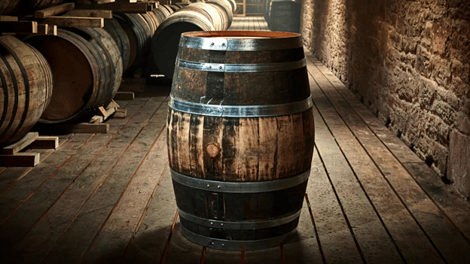- Reminders
- Whisky
- Blog

How to Store and Serve Whisky

Whisky requires careful storage, handling and serving to preserve its quality, character, and enhance the drinking experience. Whether you are an avid collector or simply enjoy a good drink now and again, here are some guidelines that will help you maintain the quality of your whisky and enhance your enjoyment.
Storing Whisky
1. Keep it Upright:
Unlike wine, whisky doesn’t benefit from being stored horizontally. Instead, whisky bottles need to be stored upright to prevent the liquid from coming into prolonged contact with the cork. Prolonged contact with the cork can cause it to deteriorate, leading to spoilage or contamination.
2. Avoid Direct Sunlight:
Direct exposure to sunlight can degrade the whisky, affecting its colour and flavour. To avoid this, store your bottles in a cool, dark place away from windows and direct light sources. A cabinet, cellar, or a dedicated whisky storage area is ideal.
3. Maintain a Stable Temperature:
Whisky should be stored at a consistent temperature, ideally between 15-20°C (59-68°F). Avoid areas with extreme temperature fluctuations, such as attics, garages, or anywhere near heating vents. High temperatures can cause the whisky to expand and contract, leading to evaporation or changes in flavour.
4. Control Humidity:
While whisky is less sensitive to humidity than wine, extreme humidity levels can affect the cork. In a low-humidity environment, the cork can dry out and crack, whereas in a high-humidity environment, the cork can absorb excess moisture and lead to mold growth. Aim for a moderate humidity level, around 50-70%, to keep the cork in good condition.
5. Seal Bottles Tightly:
Ensure that the bottle caps or corks are tightly sealed to minimize air exposure, which can lead to oxidation and flavour degradation over time. For long-term storage, consider using wax or paraffin to seal the cork.
6. Monitor Open Bottles:
As soon as a bottle is opened, the whisky begins to oxidize, which affects its flavour profile. To slow this process, store opened bottles in a manner that minimises air exposure. If an open bottle is less than half full, for example, consider transferring the remaining whisky to a smaller bottle to reduce the amount of air inside.
Serving Whisky
1. Choose the Right Glassware:
The right glass can enhance your whisky-tasting experience. A tulip-shaped glass, like a Glencairn glass, is ideal as it concentrates the aromas and allows you to fully appreciate the whisky’s bouquet. Avoid using wide tumblers, as they allow the aromas to dissipate too quickly.
2. Serve at Room Temperature:
Whisky is best enjoyed at room temperature, around 18-22°C (64-72°F). This allows the full range of flavours and aromas to be appreciated. If your whisky is too cold, it can mute the flavours. Conversely, if it’s too warm, the alcohol may overpower the subtler notes.
3. Add Water (Optional):
Adding a few drops of water to your whisky can open its flavours and aromas, especially for high-proof whiskies. Use a pipette or a straw to add water incrementally and observe how the whisky changes. Experiment to find the right balance for your taste.
4. Use Whisky Stones (Optional):
If you prefer your whisky chilled but don’t want to dilute it, consider using whisky stones. These are made from soapstone or stainless steel and can be put in the freezer before use. They cool the whisky without affecting its flavour.
5. Avoid Ice (Generally):
While some people enjoy their whisky on the rocks, ice can mute its flavours. If you want to add ice, be sure to use large, clear ice cubes to minimize dilution and maintain the whisky’s integrity.
6. Take Your Time:
Savour your whisky slowly. Take small sips and pay attention to the initial taste, the development of flavours, and the finish. Taking your time allows you to fully appreciate the complexity and craftsmanship that went into creating the whisky.
The way you store and serve whisky plays a critical role in preserving its quality and enhancing the tasting experience. By following these guidelines, you can safeguard the whisky from environmental factors and serve it in a way that best preserves its intricate flavours as intended by its distillers – making every sip more enjoyable.
Please enjoy whisky responsibly.
Banner photograph from The Lakes Distillery.
More Content
View More




















-e86a4a42-a268-49d2-b9eb-bc35aa9a2747.png/public)
